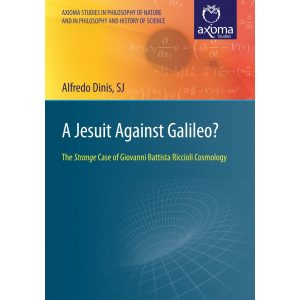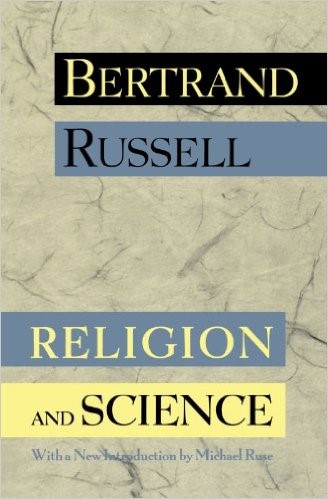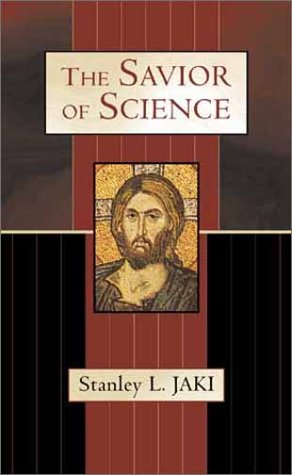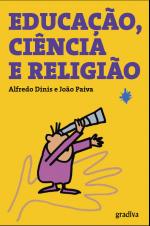Título – A Jesuit Against Galileo? The Strange Case of Giovanni Battista Riccioli Cosmology – Um Jesuíta Contra Galileu? O Estranho Caso da Cosmologia de Giovanni Battista Riccioli
Autor – Dinis, Alfredo A.
Palavras-chave – religião, ciência, cosmologia, história da ciência (religion, science, cosmology, science history)
Tema – Religião, Ciência
Dinis, Alfredo. A Jesuit Against Galileo? The Strange Case of Giovanni Battista Riccioli Cosmology. ed. Álvaro Balsas and Ricardo Barroso Batista, Axioma Studies in Philosophy of Nature and in History and Philosophy of Science 1 (Braga: Axioma – Publicações da Faculdade de Filosofia, 2017)

This study aims to contribute to the research in the history of science, specifically, in the area of the seventeenth century cosmology, which had in Riccioli, a contemporary of Galileo, an undeniable protagonist. In many histories of science, Giovanni Battista Riccioli (1598-1671) is either omitted or mentioned only briefly in relation to his main cosmological work, the Almagestum Novum (1651), which is generally taken as little more than a source of useful information. When it comes to evaluating Riccioli’s philosophical views or his contribution to the development of modern science, especially in observational astronomy, contrasting opinions have been expressed. Several scholars believed especially in the past, but some still in the present, that although during the dispute over Copernicanism Riccioli was personally convinced that the official positions of Catholic theologians were untenable, he kept his own views private, and mentioned in his works only official opinions, as if he fully agreed with them. Depicted as “a spokesman for the Society of Jesus” who was asked by his superiors to uphold a lost cause, Riccioli has been accused of behaving like a bad advocate, one who acted by commission, rather than by conviction, and who did not make a real effort to argue convincingly against the Copernican views. Since no comprehensive and contextual study of Riccioli’s cosmological views has ever been carried out, references to his thought are often put forward out of perspective. The present study attempts thus to achieve a more complete view, and sets out to illustrate the context of Riccioli’s work in the Society of Jesus, and more generally within the seventeenth century research and debate on cosmology.
Mais informações e possibilidade de compra em http://www.publicacoesfacfil.pt/product.php? e http://rpf.pt/images/axistudies/preview_axistudies_2017_1.pdf.




